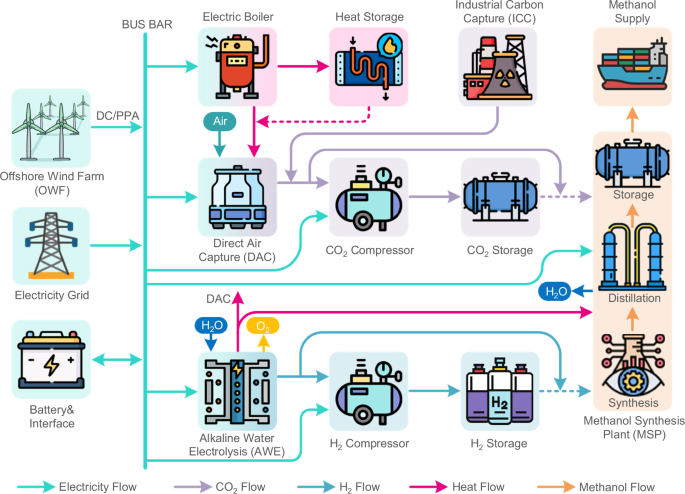Green Methanol Production for Maritime Transport: A Pathway to Decarbonization
Key Ideas
- EU regulations are driving the maritime industry towards decarbonization by imposing strict emission reduction targets and introducing regulations like the EU ETS and FuelEU Maritime Regulation.
- Green methanol, particularly e-methanol produced from green hydrogen, is emerging as a promising alternative fuel for maritime transport due to its cost-effectiveness and technological maturity.
- Offshore wind farms present a viable solution for powering green methanol production for maritime transport, offering advantages in cost efficiency, regulatory compliance, and integration with existing infrastructure.
- Academic research supports the potential of green methanol for decarbonizing maritime transport, highlighting storage advantages and the need for optimization to reduce costs further.
Significant attention is being directed towards reducing greenhouse gas emissions in maritime transport, with the EU at the forefront of implementing decarbonization regulations. These regulations, such as the EU ETS and FuelEU Maritime Regulation, are imposing stringent emission reduction targets on ships entering European ports. Ship stakeholders are exploring low-carbon alternative fuels, with green methanol, especially e-methanol derived from green hydrogen, gaining traction due to its cost-effectiveness and technological readiness. Offshore wind farms are highlighted as a key resource for powering green methanol production, offering cost efficiency, regulatory compliance, and integration advantages. Academic research supports the potential of green methanol for decarbonizing maritime transport, emphasizing storage benefits and the importance of optimization for cost reduction.
